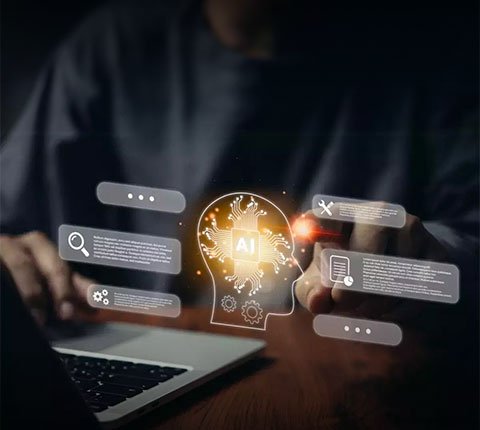31
JUL 2024
Artificial Intelligence (AI) can be transformative for a Public Relations (PR) agency. A PR agency can use AI to deliver more effective campaigns by enhancing their strategies, thereby relying a little bit less on just human intuition. There are both benefits and risks it brings with it. Let’s see!
Benefits of AI
Here are a few benefits of AI for a PR agency:
Data-Driven Insights
Artificial Intelligence accurately and quickly processes vast data which a PR agency can use to analyze media trends, sentiment analysis, and audience behaviors with lightning-quick speed. This approach involving data can help PR agencies make better and more informed decisions and help with targeted messaging, thereby leading to more effective campaigns.
Improved Efficiency
Artificial Intelligence powers automation and streamlines multiple manual tasks in the realm of public relations. These tasks include content distribution, media monitoring, and performance analysis. It helps PR professionals to focus more on building relationships, creativity, and strategy, instead of spending valuable time on routine administrative tasks.
Enhanced Personalization
Professionals in a PR agency can personalize communications at scale by analyzing data about individual behaviors and preferences. AI can make tailor-made pitches and messages that resonate better with specific audiences. This personalization enhances overall campaign effectiveness and increases engagement significantly.
Crisis Management and Prediction
A PR agency can use AI to monitor online conversations in real-time and detect any potential crisis. This proactiveness helps PR professionals respond to emerging issues quickly, manage risks, and mitigate their negative impact much before they escalate.
Risks of AI
Here are a few risks of AI for a PR agency:
Over-Reliance on Technology
AI enhances efficiency for sure and makes human work easier. However, over-reliance on AI at the expense of human creativity and judgment can be risky. PR is about storytelling and relationships fundamentally and AI can’t fully replicate human empathy and intuition.
Algorithmic Bias
AI algorithms are only as unbiased as the data they are trained on. PR campaigns driven by AI may inadvertently perpetuate biases in the data, leading to unintended consequences such as discriminatory messaging or exclusion of certain demographics.
Skill Set Evolution
AI and PR integration requires adaptation of existing skill sets and upskilling. PR professionals in a PR agency must acquire data analysis knowledge, algorithmic outputs, and AI tools to harness AI’s potential effectively and avoid its pitfalls.
Cost and Accessibility
AI technology is costly and smaller PR agencies feel it more. Moreover, AI tools and the expertise to operate them effectively can create disparities between agencies with varying resources.
Conclusion
AI is reshaping the PR industry by offering powerful tools for crisis management, personalization, efficiency, and data analysis. However, risks like over-reliance, bias, skillset, and cost can be some roadblocks to its effective usage. Striking a balance between technological innovation and human expertise will be key to maximizing the benefits of AI while preserving the essence of effective public relations—authenticity, creativity, and meaningful engagement. As AI continues to evolve, so too must PR strategies evolve to realize its potential responsibly and ethically.


